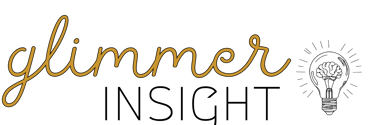The Subtle Noticing Techniques in Trauma Recovery
Learn how subtle noticing techniques in trauma recovery can transform your healing journey by fostering curiosity over judgment about bodily sensations. Discover practices to better understand and manage your body’s messages.
Cassidy Causey
9/19/20242 min read


Have you ever experienced an unexpected sensation in your body and felt overwhelmed or confused by it? Maybe it was a sudden pang of anxiety, a tight knot in your chest, or a fluttering feeling in your stomach. These sensations can often feel unsettling, especially when we’re trying to navigate the complex journey of trauma recovery. Rather than letting these sensations dictate our responses, learning subtle noticing techniques can help us approach them with curiosity and compassion.
The Power of Curiosity Over Judgment
When we encounter physical sensations related to trauma, it's common to react with judgment or self-criticism. We might think, “Why am I feeling this way?” or “I shouldn’t be experiencing this.” However, this reaction can deepen feelings of shame and frustration, making it harder to process and heal. Instead, shifting our approach to one of curiosity can be transformative.
Curiosity involves asking questions and exploring sensations without preconceived notions. Rather than reacting to or judging the sensation, we learn to observe and inquire about it:
What is this sensation trying to tell me?
Where in my body do I feel this most intensely?
How does this sensation change over time?
By asking these questions, we begin to understand the messages our bodies are sending, helping us to better manage our responses and emotions.
Understanding Sensations as Communication
Our bodies are constantly communicating with us through sensations. These signals can offer valuable insights into our emotional and psychological states. For example, a tightening in the chest might indicate underlying anxiety or stress. Instead of dismissing or criticizing these sensations, subtle noticing encourages us to engage with them thoughtfully.
Learning to be curious about bodily sensations allows us to:
Identify Patterns: Recognize how certain sensations relate to past traumas or stressors.
Develop Awareness: Understand what triggers these sensations and how they evolve.
Facilitate Healing: Use this awareness to implement effective coping strategies and interventions.
Techniques for Cultivating Curiosity
Here are a few techniques to help integrate subtle noticing into your trauma recovery process:
Mindful Observation: Sit quietly and focus on the sensations in your body. Note where you feel tension, discomfort, or other physical experiences. Avoid labeling these sensations as good or bad—just observe.
Body Scan: Conduct a body scan by mentally scanning from head to toe, observing any sensations you encounter. Pay special attention to areas that feel unusual or intense.
Journaling: Write down your observations about bodily sensations. Reflect on when they occur and any associated emotions or memories. This practice can help in understanding the deeper connections between sensations and trauma.
Breath Awareness: Use mindful breathing to anchor yourself and observe sensations more clearly. Deep, slow breaths can help in easing tension and enhance your ability to notice subtle changes.
Conclusion
Embracing curiosity around bodily sensations rather than judgment can significantly enhance your trauma recovery journey. By learning to notice and understand these sensations, you’re better equipped to manage your emotional responses and foster healing. It’s about building a compassionate relationship with your body and its messages, paving the way for deeper self-awareness and recovery.
If you’re interested in exploring how subtle noticing techniques can support your healing process, I encourage you to check our resources page or book a consultation with us today. Together, we can navigate this journey with curiosity and compassion.


© 2025 Glimmer Insight Therapy. All rights reserved.
Terms and Conditions | Privacy Policy
📍
Based in Vancouver, BC
cassidy@glimmerinsighttherapy.ca
I respectfully acknowledge I live and work on the unceded traditional territory of the xʷməθkʷəy̓əm, (Musqueam), Skwxwú7mesh (Squamish), and səl̓ilwətaɁɬ (Tsleil-Waututh) Nations. I support the fight for land back and the harms of colonization are an explicit part of the conversation in this practice.
